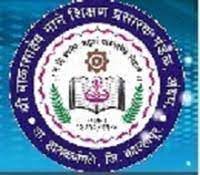SBMSPM Approval by AICTE
The All India Council for Technical Education (AICTE) was established in November 1945 as a national-level apex advisory body. Its primary objectives include conducting surveys on available facilities for technical education, and fostering coordinated and integrated development in the country. The AICTE Act mandates the establishment of an All India Council for Technical Education to ensure proper planning and coordinated development of the technical education system nationwide. Additionally, it aims to promote qualitative enhancements alongside planned quantitative growth and regulate and maintain norms and standards within the technical education system.
SBMSPM affiliated with Shivaji University
Established in 1962, Shivaji University pays homage to the esteemed Maratha Warrior and founder of the Maratha empire, Chhatrapati Shivaji Maharaj. Its inauguration on November 18th, 1962, by Dr. Radhakrishnan, the then President of India, marked the commencement of its academic journey. The University was founded with a primary objective of addressing the regional educational needs of South Maharashtra. Its jurisdiction spans over three districts - Kolhapur, Sangli, and Satara - with approximately 300,000 students enrolled in its 280 affiliated colleges and recognized institutes. This region boasts a rich socio-cultural heritage, nurtured under the visionary leadership of Chhatrapati Shahu Maharaj, the princely ruler of Kolhapur. His initiatives transformed the city into a hub of educational opportunities for diverse communities of South-Western Maharashtra and northern parts of neighboring Karnataka. Notably, this land is associated with Karmaveer Bhaurao Patil, who championed the cause of spreading education through his innovative 'Earn and Learn' scheme. The establishment of Shivaji University, mandated by the Shivaji University Act of 1962, aimed to democratize higher education, foster research in science and humanities for regional development, and ensure accessibility to rural youth. Commencing with 34 affiliated colleges and 14,000 students, the University has expanded significantly, currently boasting 280 affiliated colleges, over 300,000 students, and 34 Postgraduate Departments on campus. It offers education across 10 major faculties encompassing Arts, Social Science, Science, Commerce, Education, Fine Arts, Law, Medicine, Ayurvedic Medicine, Engineering, and Technology.

 Kolhapur, Maharashtra
Kolhapur, Maharashtra
 Collage
Collage
 2009
2009
 AICTE
AICTE



 back
back